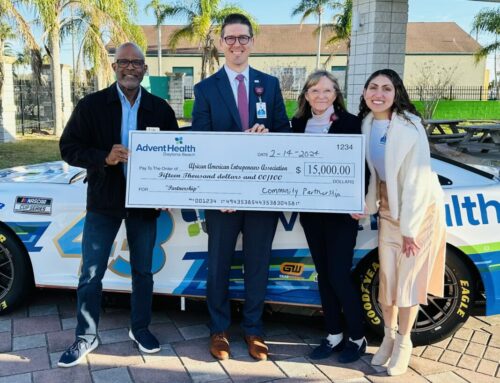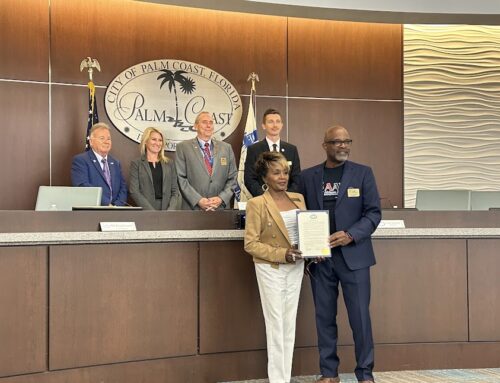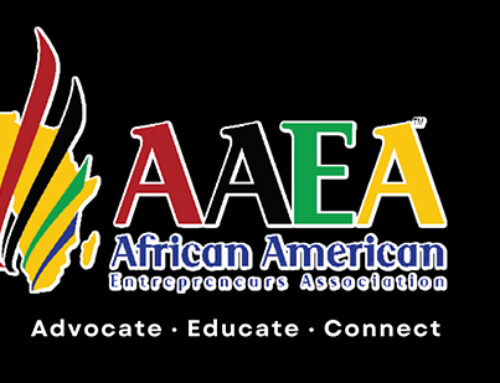Original Article: https://www.news-journalonline.com/news/20171229/palm-coast-kwanzaa-celebration-focuses-on-economics
A Flagler County organization staged its annual Kwanzaa celebration Friday afternoon.
PALM COAST — Dozens of people filled the African American Cultural Center in Palm Coast on Friday for the organization’s annual Kwanzaa celebration. It was a chance for attendees to reconnect with their community and their heritage.
The day’s theme was “Ujamaa,” a Swahili word that refers to cooperative economics. In keeping with that idea, event chair Brenda Andrews said she hoped those attending would consider what businesses they could develop that would impact their family, community and nation.
In fact, in describing the central tenets of Kwanzaa, Andrews always comes back to those same three areas of focus: family, community and nation.
Kwanzaa is an annual seven-day observance that begins Dec. 26 and ends Jan. 1. Each day, one of the Seven Principles — or Nguzo Saba — is highlighted. These principles are: Umoja (unity), Kujichagulia (self-determination), Ujima (collective work and responsibility) Ujamaa, Nia (purpose), Kuumba (creativity) and Imani (faith).
The observance was founded in 1966 by Dr. Maulana Karenga of the Black Studies Department at California State University, Long Beach. Kwanza means “first fruits” in Swahili. According to Edward H. Brown Jr., one of the organizers of the local event, the third “A” was added to the name in part to align the number of letters with the seven principles.
The African American Cultural Center has hosted Kwanzaa celebrations annually throughout its 26-year history. The center’s program offers a variety of cultural and entertainment experiences for participants.
One of the central parts of the program is the lighting of the candles of the Mishumaa Saba candelabra; there is one candle for each of the seven days of the observance.
This year, the honor went to Brown, his wife, Wilhelmina, and their daughter Edwina, 12.
Brown called Kwanzaa a “unique African-American holy week” — as opposed to a “holiday.”
Other highlights of the observance included a dance demonstration by the Florida Steppers International and a dramatic poetry recitation by Andrea Graves. Meshella Woods presented a history of African-American economic achievements in keeping with the day’s theme, and explained how African-Americans have excelled at cooperative enterprises as long as they have been in America.
Also on hand were five vendors offering a variety of wares and food.
At the Paparazzi table, Cynthia Watson-Fields and her cousin Carol James-Smith sold jewelry at affordable prices.
Watson-Fields exemplified the kind of entrepreneur described by Andrews. She said she became interested in starting her business after a friend tried it.
“It’s a really rewarding business,” she said.
At a nearby table, Leslie F. Giscombe presented information on his African American Entrepreneurs Club.
He said entrepreneurship was very important to the African-American community.
“It’s the base when it comes to economic development,” he said. “Everything stems from that. When you’re building a healthy community, it starts and it ends with economic development. Economic development at the same time is mostly supported by entrepreneurship.”
In part, the mission of his organization is “to create and nurture a team of like-minded African-American entrepreneurs and supporters within our community.”
Kwanzaa continues today with Nia, or “purpose.”



